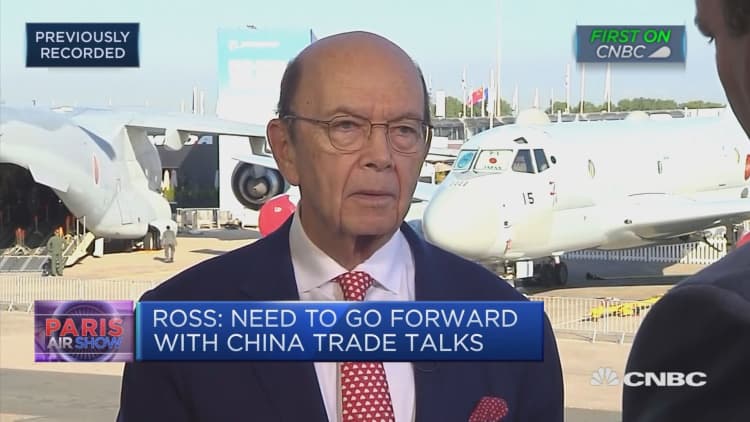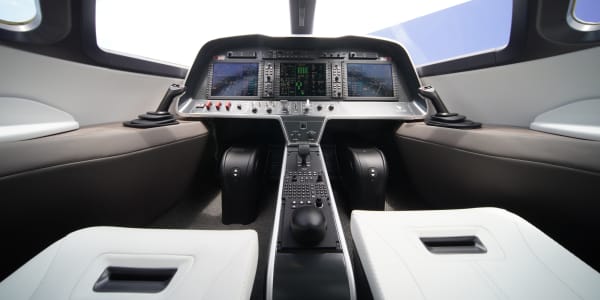
The United States is finding it difficult to negotiate trade with the European Union, U.S. Commerce Secretary Wilbur Ross told CNBC Monday.
Both sides of the Atlantic have been at odds over trade ever since President Donald Trump took office back in 2016. Since then, the president ended trade negotiations between the U.S. and the EU over a wide-ranging deal (the Transatlantic trade and investment partnership – TTIP), has imposed tariffs on European steel and aluminium products, as well as threatened to slap further duties on European carmakers.
"For the moment, it's complicated to negotiate with the European Union, because they just had their parliamentary election, they haven't picked a new president of the European community yet, they haven't picked a new trade commissioner and so there's really nobody to negotiate with who will be around in the long term," Wilbur Ross, the U.S. Commerce Secretary told CNBC's Phil LeBeau at the Paris Airshow.
European citizens voted at the end of May on new lawmakers that will sit in the European Parliament, starting July 2. The new chamber will be responsible for approving, alongside with the 28 country leaders, a new president of the European Commission – the EU's executive arm.
The new European Commission President is expected to start the mandate on November 1. Until then, the current team will be responsible for carrying on with the day-to-day activities of the institution, including negotiating trade deals.
"The way the European Commission works, the trade commissioner needs to get a mandate from all the countries before he or she is able to have meaningful negotiations so it's probably going to be some time in the fall before anything in substance gets going," Ross said.
Europe's trade commissioner, Cecilia Malmstrom, got a mandate from the 28 European countries in April to reach a deal with the U.S. over industrial goods. However, the European Commission has previously said that Washington has not said yes to starting official rounds of talks, despite the EU being ready to do so.
There's one big motivation for Europe to reach a deal with the U.S.: preventing duties on its carmakers – a sector responsible for much of the economic growth in the region.
"I'm an optimist by nature so I think there's a very good chance we will work something out with them," Ross said about a deal with Europe.
"But if not, the President is totally comfortable going the other direction," he added, hinting at the chance of car tariffs.
Trump announced last month that he would delay tariffs on cars and auto part imports for up to six months as discussions with the European Union and Japan take place and while he seeks to conclude talks with China. The president had threatened as early as last year that he would slap a 25% tariff on car imports from the European Union.





